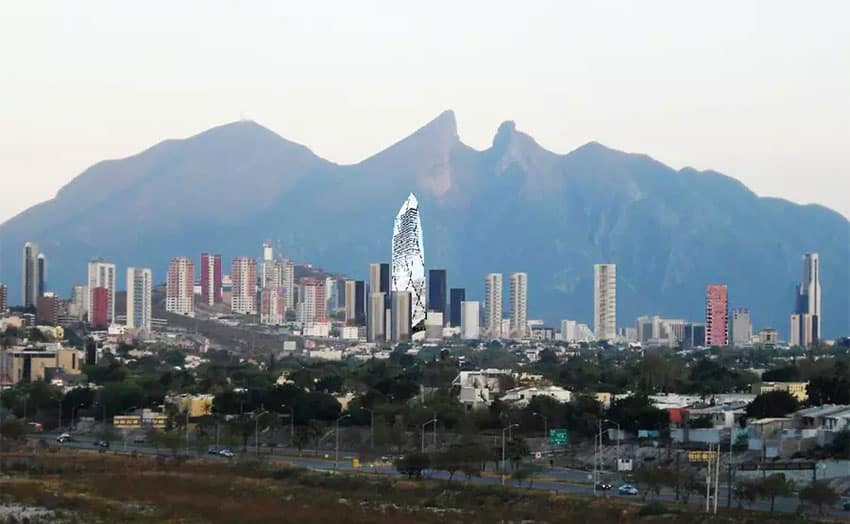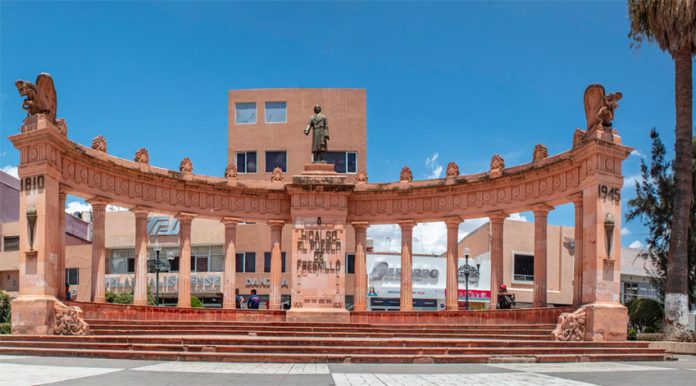Almost seven in 10 Mexican adults feel unsafe in the city where they live, according to a new security survey that found that Fresnillo, Zacatecas, is seen as the least safe city in the country.
Conducted by the national statistics agency Inegi in December, the 29th National Survey on Urban Public Security found that 68.1% of adults believe that where they live is unsafe.
The figure is 4.8% lower than that detected by Inegi’s December 2019 survey.
The most recent survey found that 72.6% of women and 62.7% of men believe their city is unsafe.
The perception of insecurity was highest in Fresnillo, where 94.8% of respondents said they felt unsafe. According to Mayor Saúl Monreal Ávila, the municipality of Fresnillo – where nine people were shot dead and three people were kidnapped by armed gangs overnight Monday – has been “overtaken” by organized crime activity.
Ecatepec, a densely populated México state municipality that borders Mexico City and is notorious for femicides and crime generally, ranked as the second most dangerous city. Almost nine in 10 Ecatepec residents who were surveyed – 89.9% – said the municipality is unsafe.
Coatzacoalcos, Veracruz; Cancún, Quintana Roo; Cuernavaca, Morelos; and San Luis Potosí city ranked third to sixth as the most unsafe cities among the 70 whose residents were surveyed by Inegi. Between 87% and 89% of residents of those cities said they were unsafe.
Conversely, San Pedro Garza García, an affluent municipality in the metropolitan area of Monterrey, Nuevo León, ranked as the safest city. Only 11.7% of survey respondents said they felt unsafe living there.
The popular tourism destination of Los Cabos, Baja California Sur, ranked second with just 17.3% of respondents saying it is unsafe. The security situation has improved markedly in recent years after being plagued by high levels of violent crime up until 2018.
Just under a quarter of the residents polled in Mérida, Yucatán, said they considered their city unsafe, making the state capital the third safest in Mexico. Saltillo, Coahuila; La Paz, Baja California Sur; and San Nicolás de los Garza, Nuevo León, ranked as the fourth to sixth safest. Just over 30% of residents of those three cities consider them unsafe.
In a report published Tuesday, Inegi noted that the perception of insecurity increased by a statistically significant amount in some cities in the 12-month period to December 2020 and declined by a significant amount in others.

Among the cities in the former category are Méxicali, Baja California, up 9.2% to 63%; Colima city, up 12.3% to 71.8%; and Zacatecas city, up 8.1% to 85.9%.
Among the cities where the perception of insecurity declined considerably are Ciudad del Carmen, Campeche, down 17% to 64.7%; Chihuahua city, down 12.4% to 60.7%; Ciudad Juárez, Chihuahua, down 16.8% to 73.7%; Morelia, Michoacán, down 8.2% to 72.7%; and Puebla city – which was seen as the least safe city in the country a year ago – down 10.5% to 82.2%.
The urban security survey also found that 28.1% of those polled had either been a victim of robbery or extortion themselves in the second half of 2020 or lived with someone who had.
Those crimes plague Iztapalapa, a sprawling, impoverished borough of Mexico City, more than anywhere else, Inegi found.
Almost half of Iztapalapa residents surveyed – 47.1% – said that they had been a victim of robbery or extortion, or lived with someone against whom one of those crimes were committed between July and December last year. Just over eight in 10 Iztapalapa residents said that they considered the borough an unsafe place to live.
Ranking behind Iztapalapa in terms of the percentage of victims of robbery and extortion were Atizapán, México state; Tláhuac, Mexico City; Cuautitlán Izcalli, México state; and Magdalena Contreras, Mexico City. The percentage of victims in those locations was also above 40%.
The survey also found that 12% of respondents came into contact with police in the second half of last year, of whom 47.9% were victims of corruption.
Just over 14% of respondents were victims of sexual harassment or assault between July and December. The percentage was 21.6% among women and 5.7% among men.
Mexico News Daily
